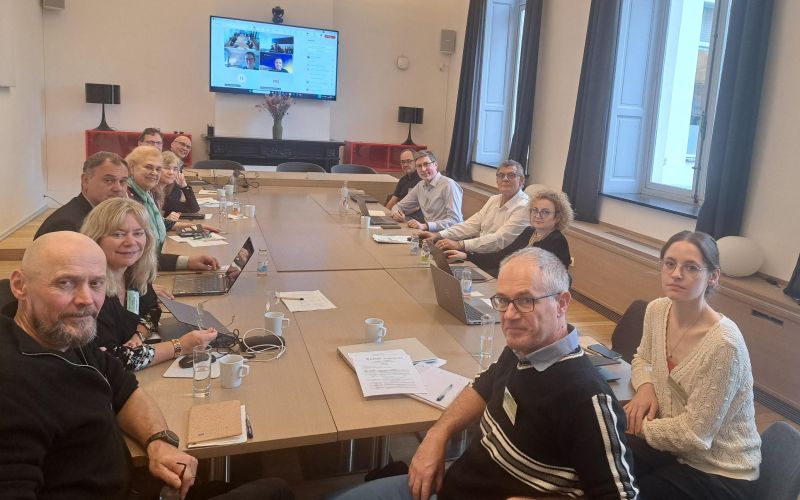




 | Mika Kallio (FI) - mika.kallio@gov.fi (Communication Representative) |
 |  |
| Anne Tolvanen (FI) anne.tolvanen@luke.fi | Tony Quinn (IE) Tony.Quinn@agriculture.gov.ie |
Mandate:
01/07/2023 to 30/06/2026
22 member states and 6 observers + EC and key advisor
Forests cover 35% of Europe’s total land area, an area equivalent to Europe’s agricultural land (Forest Europe 2020).
In addition to their high economic importance, European forests provide a wide set of environmental benefits. They are a major carbon sink: in the EU-28, carbon sequestration by forests corresponds to around 10% of gross greenhouse gas emissions. Forests also harbour the greatest part of terrestrial biodiversity, and scientific knowledge is increasing on the importance of forests on human wellbeing and health.
Building a research area for forests and forestry is all the more important as questions and challenges in forestry touch on many related topics such as carbon management, biodiversity, human wellbeing, rural development and economy.
Moreover, in a time of accelerating global changes, it is important to foster transfers from research to innovation and policy.
The SCAR Strategic Working Group on Forests and Forestry Research and Innovation has a specific role to play in reinforcing expectations towards forest research and innovation. It can initiate research cooperation initiatives, follow the development of these initiatives, and review and disseminate their results.

A source of advice on European forest-based research and innovation (R&I), thus contributing to the development of a coherent and ambitious forest-based research area.
The main objective of the SCAR SWG FOREST in its 4th mandate will be to support the development of a European research and innovation partnership on forests and forestry. The development of such a partnership is set as an objective in the new EU forest strategy “in order to strengthen EU cooperation” and “overcome the fragmentation of public research efforts in the EU”.
The list of activities for the first year is presented below:

SCAR - Bioeconomy & SCAR - Forest
May 2025
SCAR FOREST SWG | 04/2023
Mika Kallio, Anne Tolvanen, Nicolas Picard, Martin Behrens
SCAR ARCH & FOREST SWG | 10/2022
Nicolas Picard, Jessica Rebola Lichtenberg, Rune Groven, Emmanuel Albina, Siegfried Harrer
28 May 2021
Nicolas Picard and Taneli Kolström

SCAR Forest held a very successful hybrid meeting on 14th October with delegates meeting in-person in Brussels and others also joining online. The meeting covered a variety of exciting topics, including:
The meeting was held in conjunction with the ForestValue2 - “Science in Progress” event and is followed by EUFORE Stakeholder Event on 15th October under the theme “Shaping the Future of Forest Research & Innovation for a Competitive Europe”.
| 14 Oct 2025; 12:00AM Forest SWG meeting |
| 05 Mar 2026; 12:00AM Online Workshop - Identifying Research Gaps for a Resilient Bioeconomy in the Poly-Crisis Context |